HaP Spring School: Organizers, Lecturers, and Contributors
The HaP International Spring School 2024 is enriched by a diverse variety of perspectives of academics, practitioners, performers, and more. Please hover over each photo to learn more about those who contribute to the spring school (presented in order of appearance on the program). The School is organized and led by HaP team members Binita Magaiya, Dr. Monica Mottin, and Dr. Monalisa Maharjan.

Binita Magaiya is a research assistant of Heritage as Placemaking and an architect specializing in the conservation of monuments and heritage structures. For HaP, Binita’s research project looks at Mukundapur, a historic, ‘forgotten’ ruin that is geographically located in the inner plains of Nepal between Lumbini and Kathmandu, with strong art historical ties to India. She is an organizer of the HaP Spring School.
Binita completed her master’s from KU Leuven with a degree in Conservation of Monuments and Sites. She recently finished the project to reconstruct Kasthamandap, a city icon in itself. A former heritage activist, Binita is now engaged in the preservation of intangible heritage via her work as a storybook writer for children. She is also a co-founder of Baakhan Nyane Waa (Come, Listen to Stories!), a non-profit organization that documents and converts oral histories and stories into illustrated children’s books.
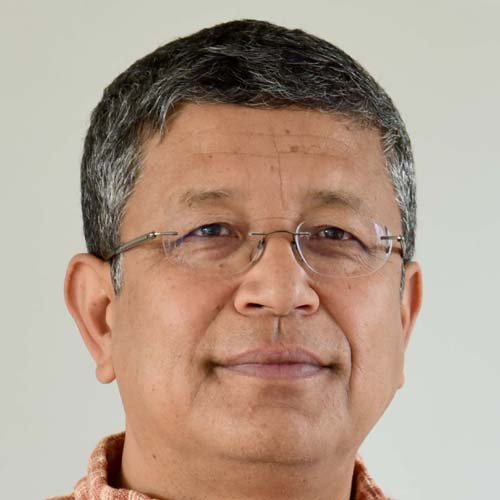
Deepak Thapa serves as the Director at Social Science Baha, one of the four core partner instituions of the Heritage as Placemaking project. Deepak is actively engaged in discussing and analyzing Nepal's current social and political landscape through his regular writings. Additionally, he has contributed significantly as an author and editor to various publications, with his latest work being "The Politics of Change: Reflections on Contemporary Nepal" (edited), published by Himal Books, Kathmandu, in 2019. Since 2009, he has been a biweekly columnist for The Kathmandu Post.
Deepak welcomes the HaP Spring School participants on behalf of Social Science Baha.

Swosti Rajbhandari Kayastha is a cultural heritage scholar and a museum and gallery professional working with Nepal Art Council as curator and PR officer. She works as lecturer at Lumbini Buddhist University, Kathmandu. She enjoys curating exhibitions and making educational programs for exhibitions, and writes articles related to Nepali art and culture.
For the HaP Spring School, Swosti speaks on the repatriation of tangible heritage and leads the guided visit to the National Museum.

Sabina Maharjan is First Vice President of the Jyapu Samaj.
In the HaP Spring School, she takes participants on a guided tour of the Jyapu Community Museum and facilitates the use of the Jyapu Samaj sapce.
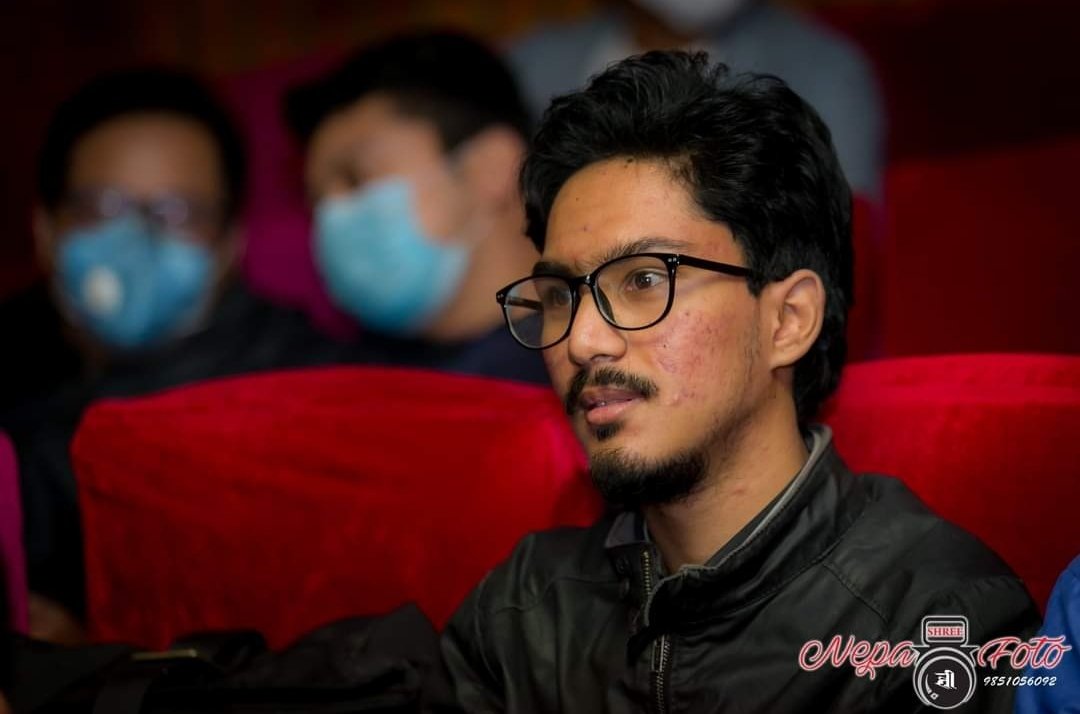
Ajesh Chitrakar is a freelance artist and photographer. He has been capturing photographs of Jatra and heritage of Kathmandu Valley since 2016. He is also pursuing his Bachelor’s degree in Fine Arts at Sirjana College of Fine Arts.

Ananda Muni Bajracharya is engaged in promoting and uplifting Nepal Bhasha (his mother language). He is editor of the journal BULUMI, published by the then-students forum of Nepal Adarsha Secondary School in 1983. Professionally, he is a finance and administrative manager and has served a number of National and International Non-Government Organizations for more than 30 year at Habitat for Humanity International (HFHI USA), International Center for Transitional Justice (ICTJ USA), Shapla Neer (Japan), IIDS, New ERA, etc. He has also been involved in Asha Saphu Kuthi (Nepalese Manuscript Library) for more than 5 years, contributing to its documentation, preservation and library management. He received a primary Buddhism education in his own home and venerable Bhikchhu from Theravada monastery in Kathmandu. Currently, he has been learning from the venerable guru Mr. Yagyaman Pati Bajracharya, Bauddha Darshan Adhyayan Puchaa since 2015.
Ananda Muni Bajracharya is the program moderator for the HaP Spring School Session on Charya dance at Shreekhanda Tarumul Mahavihar.
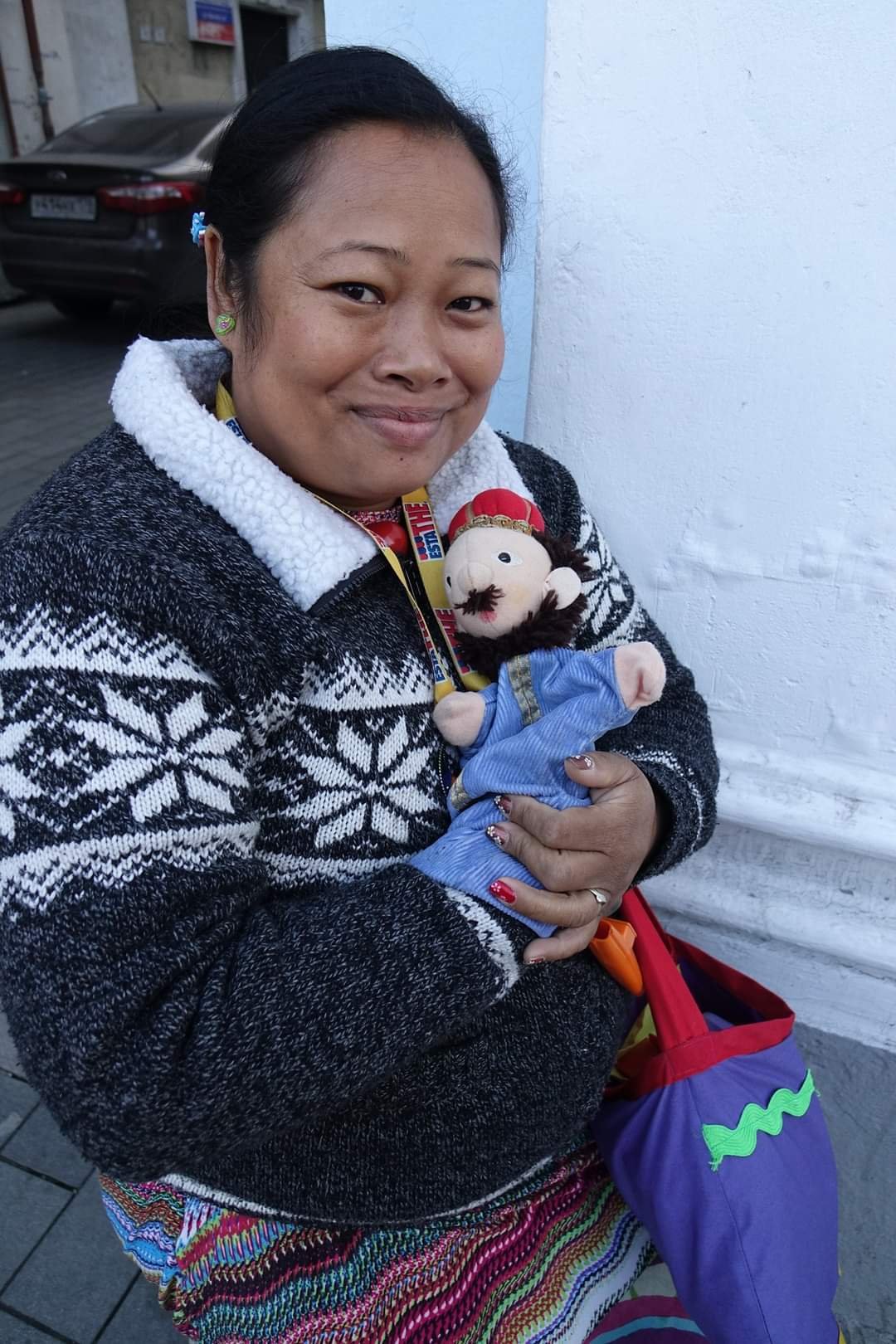
Manju Ale has a Master’s degree in Humanities (dance) and is also pursuing her second Masters’ degree in Buddhist studies. She specializes in Carya, Kathak and Nepalese cultural dances. Currently, she is a faculty member in Srijana college of Fine arts and Anandakuti Vidyapeeth School.
Manju Ale will guilde the Spring School participants on Day 3: “Understanding Charya as a Way of Life.”

Dr. Monica Mottin is a social anthropologist and a research fellow at the Heidelberg Centre for Transcultural Studies, Heidelberg University. Her project within Heritage as Placemaking studies how heritage performances make ‘places’ both in the Kathmandu Valley and in the Janakpur area. She is an organizer of the HaP Spring School.
Previously, Monica taught at London Metropolitan University and Ruskin College, Oxford (UK). She holds a degree in Philosophy/Modern Languages from the University of Padua (Italy). Monica completed both her MA in Anthropology of Development and a PhD in Social Anthropology (2010) at SOAS University of London, focusing on how the arts, and theatre in particular, can create spaces for social transformation in social and political movements as well as through international development projects. Monica has published on theatre and on political-cultural work in Nepal, including the monograph Rehearsing for life: theatre for social change in Nepal (Cambridge University Press 2018).
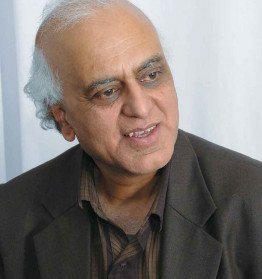
Professor Abhi Subedi is a scholar, a translator, an essayist, a linguist, a critic, a poet and a playwright. He studied both in Nepal and Britain. He was head of the Central Department of English at Tribhuvan University, where he taught for 45 years. He has written dozens of books and ten plays performed by various groups both within Nepal and abroad, was vice President of the Nepal Folklore Society, and the founding former president of the International Theatre Institute (2000-2008). His articles on culture, the arts, education, and politics are often published on newspapers, and he recently published a collection of poems titled Forever Arriving (2024).
Prof. Subedi gives one of two keynote lectures in the HaP Spring School, on performance and place.

Emiline Smith is a research fellow in the Heritage as Placemaking project and a lecturer in Criminology at the University of Glasgow, Scotland.
For the HaP Spring School, Emiline speaks about her research regarding the theft of cultural objects and the ethics around engaging with such objects.
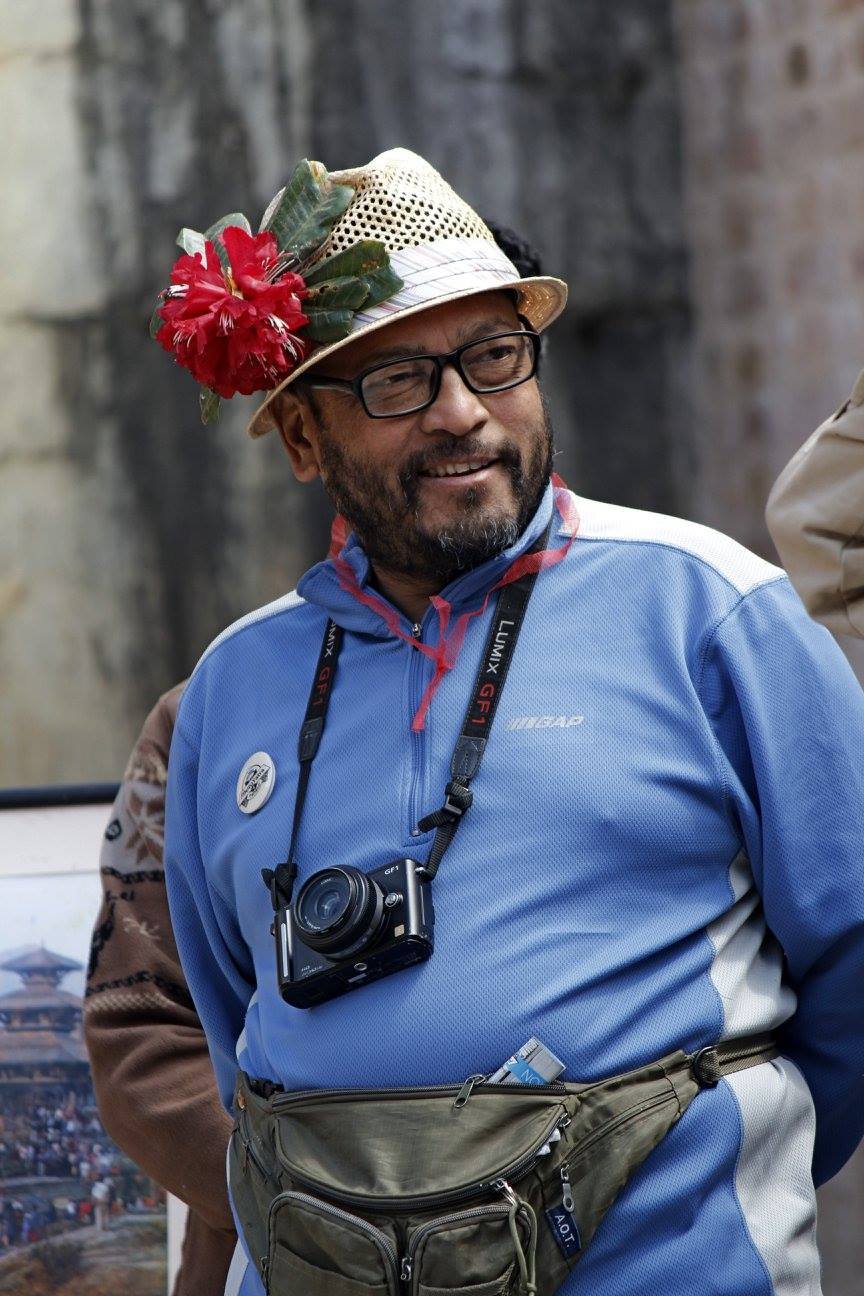
Min Ratna Bajracharya is one of Nepal’s pioneer photojournalists. Bajracharya has been on the front lines of various political movements and economic developments in the country. Bajracharya spent years following Ganesh Man Singh, the leader of the democratic movement of 1990s. He has worked for Himal Magazine.
Min Ratna Bajracharya will engage HaP Spring School participants in methodology and best practices for documenting living cultural heritage and performance.
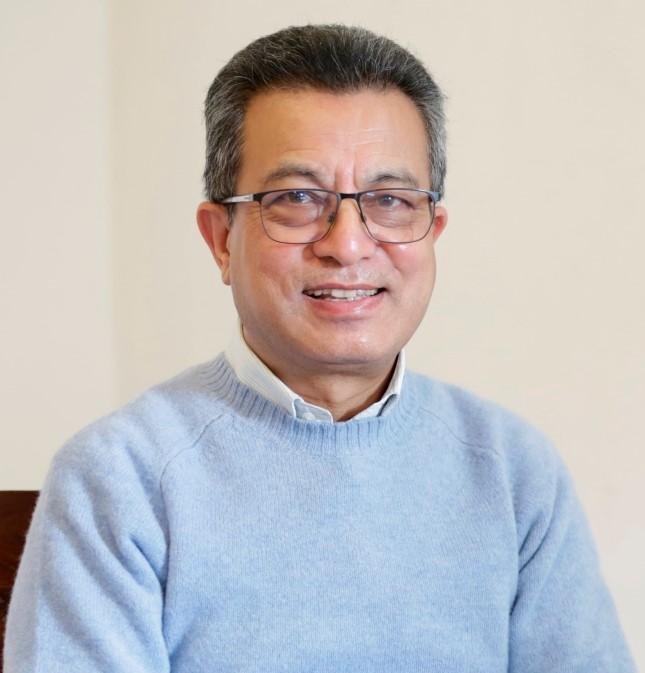
Padma Sundar Joshi has recently joined Madan Bhandari University of Science and Technology (MBUST) as Vice President of the University responsible for Administration and Finance. He is also appointed as advisor to Lalitpur Metropolitan City. He led the UN-Habitat Nepal Office from 2010-2021. Before joining UN, he was an Associate Professor at the Institute of Engineering, Tribhuvan University. His area of work is Urban Planning and Environment. Mr. Joshi has published books and a series of articles in urban development-related fields. His most recent book, in Nepali, explores the water management system of Kathmandu Valley. Apart from the university, he is also supporting Lalitpur Metropolitan City in reviving its traditional water system.
In the HaP Spring School, Mr. Joshi will give a public lecture about Newar Towns and placemaking.
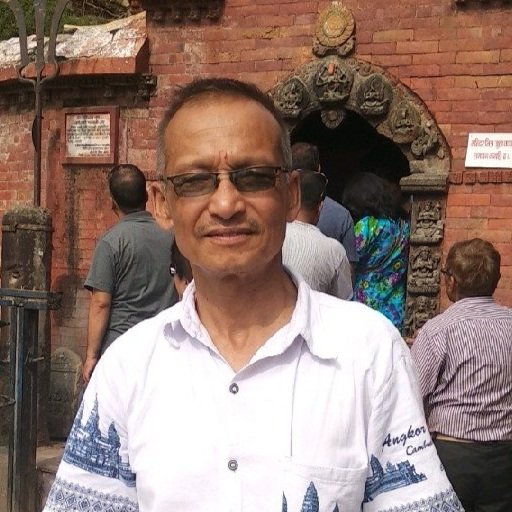
Keshab Bajracharya has a Master’s Degree in Mahayana Buddhism from Sugat Buddhist Collage, Lumbini University. He is involved in various discourse programs and spiritual Buddhist rituals under supervision of Guru Bajracharya Yagyaman Pati and has been practicing vajrayana rituals and charygeet as a member of Bauddha Darshan Adhyayan Puchaa since 2015. He is also a retired Electrical Engineer from Nepal Electricity Authority.
Keshab Bajracharya will be present as a teacher and guide on the third day of the Spring School: “Understanding Charya as a Way of Life.”
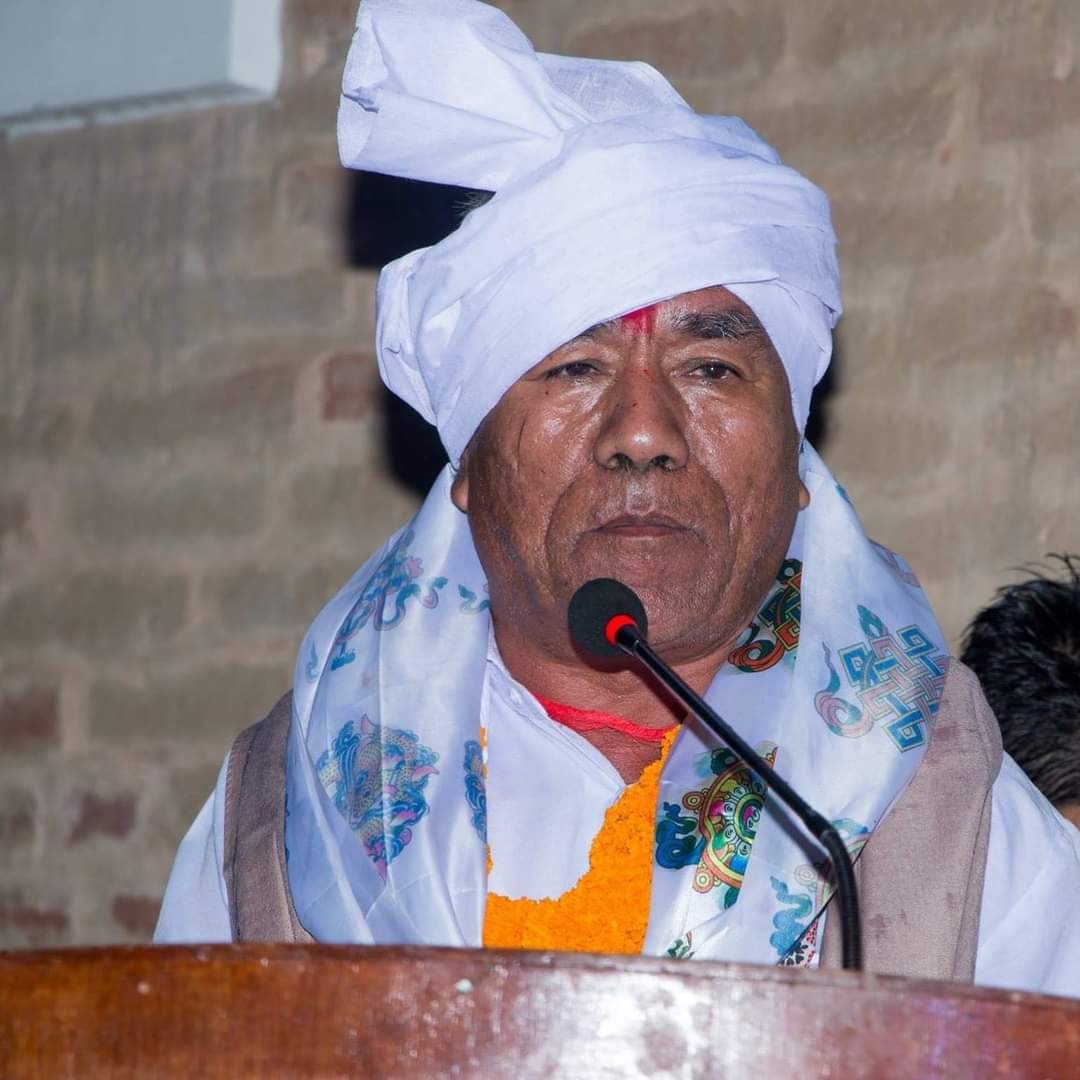
Padmaraj Bajracharya is a Charya master and Vajrayana priest based in Patan. He is a ritual Charya practitioner with most of his works in Charya mudras in daily ritual based initiations. He will be one of the guides on the third day of the HaP Spring School: “Understanding Charya as a Way of Life.”

Dr. Monalisa Maharjan is a research fellow at Social Science Baha under the Heritage at Placemaking project funded by Riksbankens Jubileumsfond. Her research is about heritage activism with a focus on ancient stone spouts in Kathmandu Valley. Monalisa is an organizer of the HaP Spring School.
Monalisa is also a consultant at the Nepal Heritage Documentation Project (NHDP) run collaboratively by the Heidelberg Centre for Transcultural Studies (HCTS). Her research on the Anthropology of Inscriptions, studies how the local communities give continuity to ancient practices and their relation to ancient inscriptions. She is also a Facilitator in UNESCO's 2003 Convention for the Safeguarding of ICH and an executive member of ICOMOS Nepal.
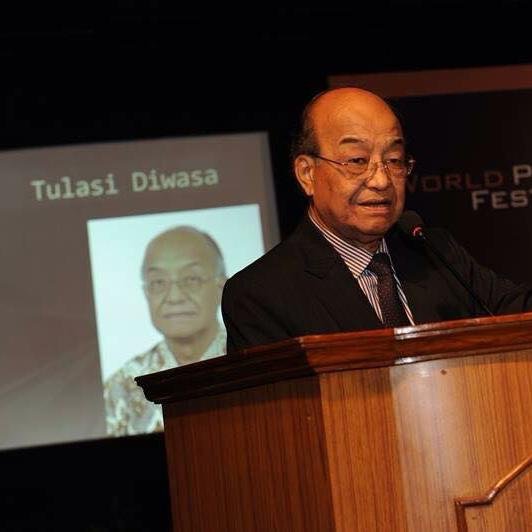
Professor Tulasi Diwasa is a scholar, a poet and a writer. He was a professor of Nepali literature at Trichanda College and Padmakanya Campus. He also served as a Cultural Secretary at the Nepalese Embassy in the US and taught as a visiting professor at various universities. He is the President of the Nepal Folklore Society and life member of the Nepali Academy, and has published dozens of books on literature, folk culture and folklore. He also co-wrote The intangible cultural heritage of Nepal: Future Directions for UNESCO and is an expert on heritage policy.
Prof. Diwasa gives one of the keynote lectures on the Spring School’s first day, on folklore and heritage.
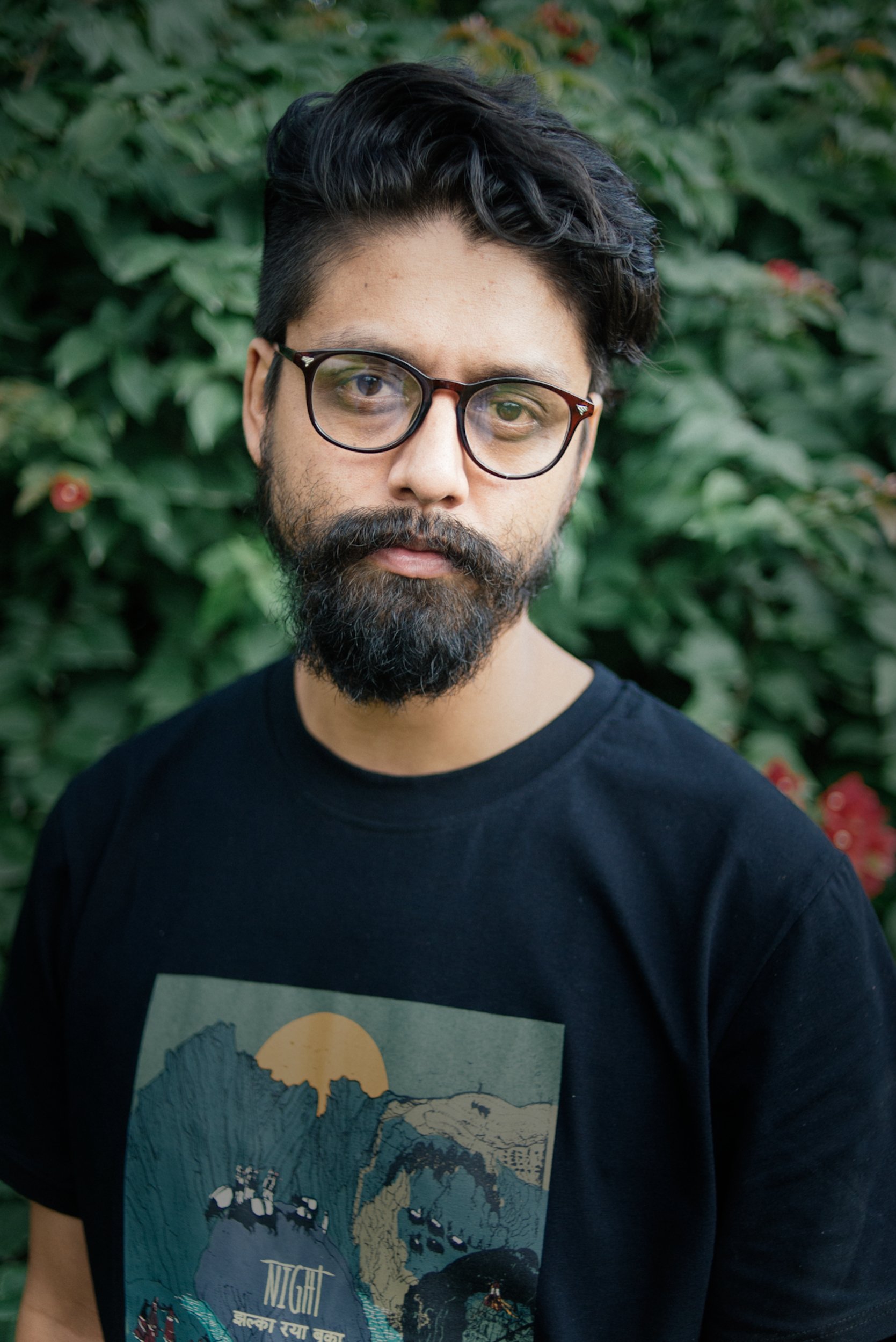
Rajan Shrestha is a Kathmandu based interdisciplinary artist working primarily with music. Bassist/co-producer for a Kathmandu/France based progressive rock outfit, ‘Atomic Bush’, Shrestha is an ethnomusicologist by academics and produces music under the moniker of 'phatcowlee'. He is also one half of Anaasir, a collaborative project with Pakistani electronic musician Alien Panda Jury. One of the founding members of Fuzzscape, a platform for cultural documentation with primary focus on music, archival and storytelling through audiovisual medium, Shrestha is currently associated with a digital audio archive named Nepal Music Archive.
Rajan trains the HaP Spring School participants in methodologies for documentation and audio/visual recording.
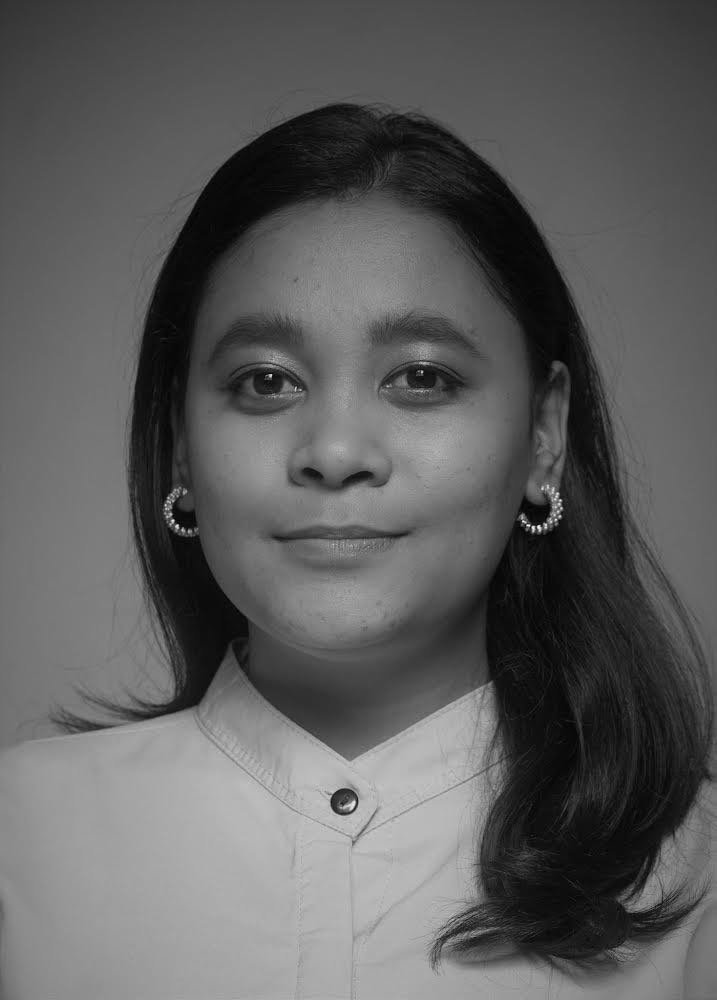
Rajeela Shrestha is a filmmaker based in Kathmandu. She is actively involved in filmmaking since 2014 and graduate from Oscar International College in Screenplay writing and Direction. She believes that visual storytelling helps people understand the complexities of the world a bit better. She is currently developing her first feature documentary. She is a 2023 Global Media Makers fellow at Film Independent.

Yagya Man Pati Bajracharya is a Charya master, a Buddhist priest, and an intangible heritage conservationist. He is retired as the financial Comptroller General from the government of Nepal and also the Past President of Dharmodaya Sabha. He had also founded Mahendra Ratna Public College and taught economics. He is now actively engaged in Vajrayana ritual practices and has over 100 disciples around the world, teaching Vajrayan as well as Charya songs and dance. He now heads the Baudha Darshan Adhyaan Pucha and is founder president of Lilavajra Pragya Pratisthan.
For the HaP Spring School, Yagya Man Pati Bajracharya is the keynote figure and mentor for the session on Charya dance.
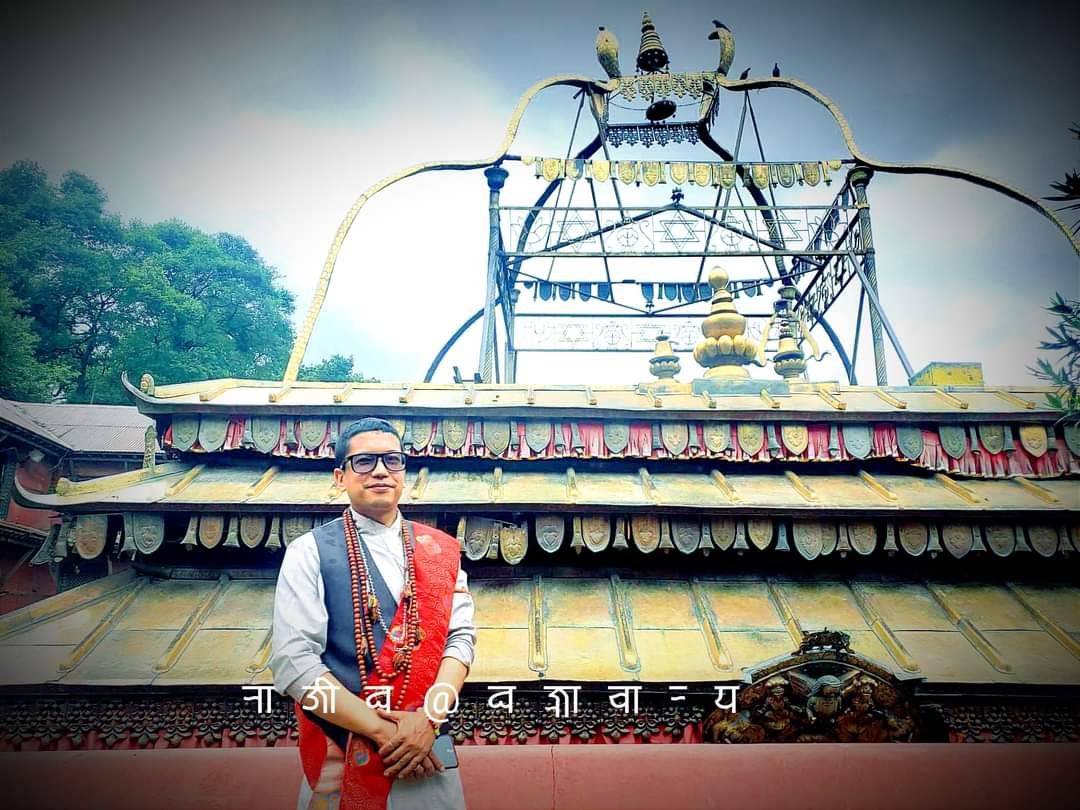
Rajeev Bajracharya is a Vajrayana master and Charya practitioner as a member of Bauddha Darshan Adhyayan Puchaa since 2015. He is also an astrologer and spiritual healer. He will provide inputs to the students on the Spring School’s third day: “Understanding Charya as a Way of Life.”

Mithileshwar Jhijhiya
Mithileshwar Jhijhiya is a cultural team from Mithileshwar Mauwahi village, Dhanusha district, Nepal. Besides performing in their own village during Dashain, the group has been performing in Janakpurdham, the capital city of Madhesh Province in Nepal and at several other cultural celebrations throughout the same area. The group perform regularly at the Cultural Village. Managed by Incredible Mithila Pvt. Ltd. and located at Puranda village, Mithila Bihari Municipality-3, the Cultural Village is a live museum providing accommodation, food, and cultural tour services to preserve the intangible heritage of Maithili region in Nepal and creating business opportunities for the native community. Every members of the team is from the same locality. The Jhjhiya performance has created a sustainable source of income for at least 15 households.
The Jhijhiya performers have traveled to the Kathmandu Valley to take part in the Echoes in the Valley music festival as part of Heritage as Placemaking’s Outreach and Engagement initiative.
